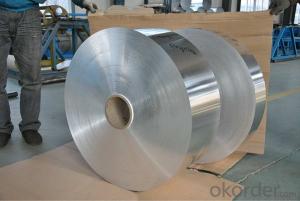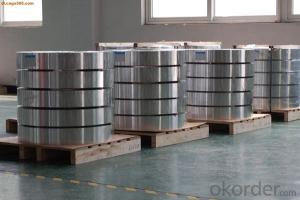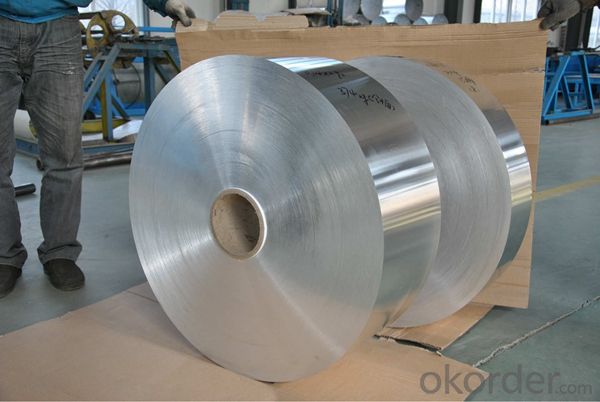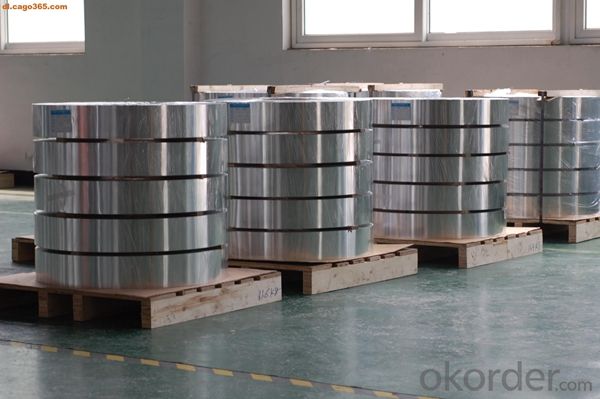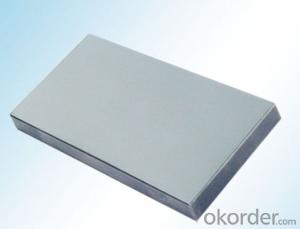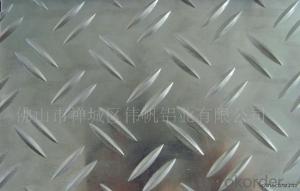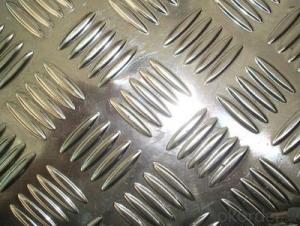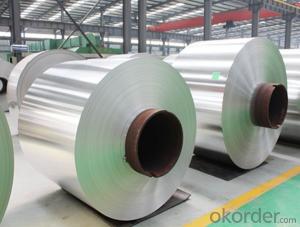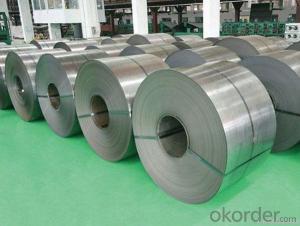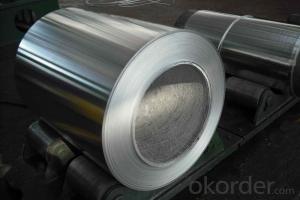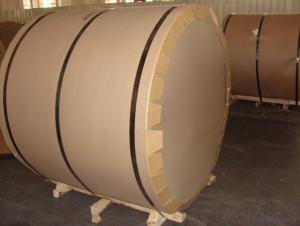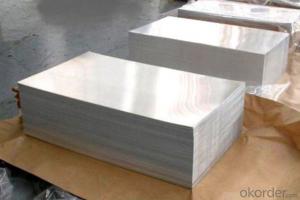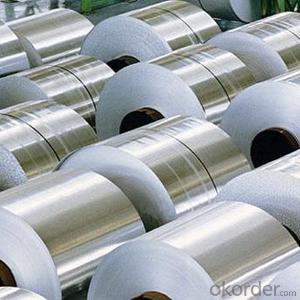Wholesale Aluminum Sheets - Mill Finished Aluminum Coil Alloy AA3XXX for Building Outer Doors
- Loading Port:
- Shanghai
- Payment Terms:
- TT OR LC
- Min Order Qty:
- 5 m.t.
- Supply Capability:
- 10000 m.t./month
OKorder Service Pledge
OKorder Financial Service
You Might Also Like
Specification
1. Specification of Mill Finished Aluminum Coil Alloy AA3XXX for Building Ourter Doors
ALLOY | AA1050 AA1060 AA1070 AA1100 ETC AA3003 AA3004 AA3005 AA3104 AA3105 ETC AA5005 AA5052 AA5083 AA5754 ETC |
TEMPER | H14,H18,H24,H26,H32 |
THICKNESS | 0.2MM-20MM |
WIDTH | 10mm-1500mm |
COIL WGT | 2Mt - 3Mt |
Coil ID | 20" |
SURFACE | Mill finished etc |
STANDARD | GB/T 3880-2006 |
2. Application of Mill Finished Aluminum Coil Alloy AA3XXX for Building Ourter Doors
(1).Interior: wall cladding, ceilings, bathrooms, kitchens and balconies, shutters, doors...
(2).Exterior: wall cladding, facades, roofing, canopies, tunnels,column covers , renovations...
(3).Advertisement: display platforms, signboards, fascia, shop fronts...
3. Feature of Mill Finished Aluminum Coil Alloy AA3XXX for Building Ourter Doors
Surfact Quality :
Be free from Oil Stain, Dent, Inclusion, Scratches, Stain, Oxide Dicoloration, Breaks, Corrosion, Roll Marks, Dirt Streaks and other defect which will interfere with use,
Mechenical Property:
Chemical Composite and Mechanical Property
4. Certificate:
SGS and ROHS(if client request, paid by client), MTC(plant provided), Certificate of Origin(FORM A, FORM E, CO), Bureau Veritas and SGS (if client request, paid by client), CIQS certificate
5. Image of Mill Finished Aluminum Coil Alloy AA3XXX for Building Ourter Doors
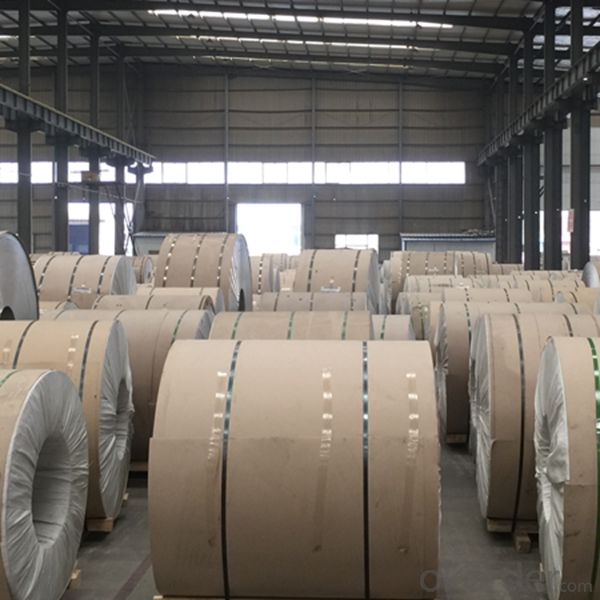
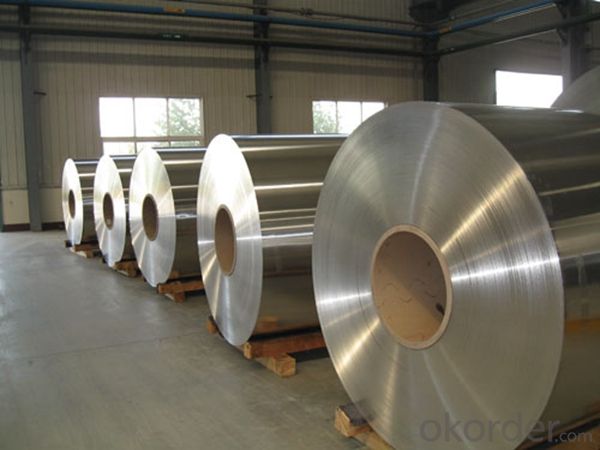
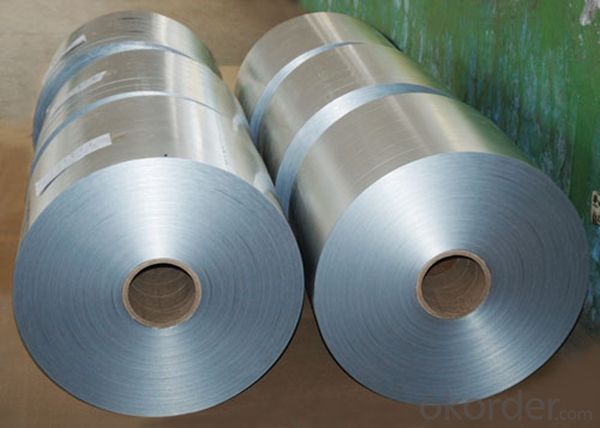
6. Package and shipping of Mill Finished Aluminum Coil Alloy AA3XXX for Building Ourter Doors
First, plastic cloth with drying agent inside; Second, Pearl Wool ; Third, wooden cases with dry agent , fumigation wooden pallets, aluminum surface could cover blue PVC film
7. FAQ
1) What is the delivery time?
Dpends on actual order, around 20 to 35 days
2)What is the QC system:
We have QC staff of 20 persons and advanced equipment, each production is with MTC traced from Aluminum ingot lot.
3) What market do you mainly sell to?
Australia, America, Asia, Middle East, Western Europe, Africa etc
- Q: Are aluminum sheets suitable for artistic sculptures?
- Yes, aluminum sheets are suitable for artistic sculptures. Aluminum is a versatile material that offers several advantages for sculpting purposes. Firstly, it is lightweight, making it easier to handle and manipulate. This allows artists to create intricate and detailed sculptures without compromising on structural integrity. Additionally, aluminum is highly malleable, meaning it can be shaped into various forms and contours. This allows artists to experiment with different designs and achieve the desired artistic expression. Furthermore, aluminum is resistant to corrosion and weathering, making it ideal for outdoor sculptures. Its durability ensures that the artwork will withstand the elements and retain its aesthetic appeal over time. Additionally, aluminum sheets can be easily welded or joined together, enabling artists to create larger and more complex sculptures. Overall, aluminum sheets provide artists with a flexible and durable material that allows for creativity and longevity in their sculptural works.
- Q: Can aluminum sheets be textured or patterned?
- Yes, aluminum sheets can be textured or patterned. There are various techniques that can be used to create textures or patterns on aluminum sheets, such as embossing, engraving, or etching. These methods involve altering the surface of the aluminum sheet to create a desired texture or pattern. Additionally, aluminum sheets can also be coated or painted with different finishes or colors to achieve a specific textured or patterned appearance. Overall, with the right techniques and processes, aluminum sheets can be transformed and customized to have a wide range of textures and patterns.
- Q: As for graphite and aluminum sheet, which one has a better thermal conductivity?
- aluminum sheet
- Q: Can aluminum sheets be an alternative to ceramics in certain applications?
- Yes, aluminum sheets can be an alternative to ceramics in certain applications. Aluminum sheets offer several advantages over ceramics, such as being lighter in weight, more cost-effective, and easier to shape and fabricate. They also have excellent thermal and electrical conductivity properties, making them suitable for applications where heat dissipation or electrical conduction is required. Additionally, aluminum sheets can withstand high temperatures and have good corrosion resistance. However, ceramics still have their own unique properties and strengths, such as higher hardness, better chemical resistance, and superior insulation capabilities, which might be more suitable for certain specific applications. Therefore, the suitability of aluminum sheets as an alternative to ceramics would depend on the specific requirements and conditions of the application in question.
- Q: This question asks about the various types of aluminum sheets that are suitable for use in exterior applications, specifically those that can withstand outdoor conditions.
- <p>Aluminum sheets used for exterior applications come in various types, each with specific properties to withstand weather and environmental conditions. These include: 1. Mill Finish Aluminum Sheets: These have a natural aluminum finish and are used for applications requiring a raw, industrial look. 2. Anodized Aluminum Sheets: These are aluminum sheets that have been treated to increase their resistance to corrosion and wear. 3. Painted Aluminum Sheets: These are coated with a layer of paint for added protection and aesthetic appeal. 4. Embossed Aluminum Sheets: These have a textured surface and are used for decorative purposes or to provide a non-slip surface. 5. Perforated Aluminum Sheets: These are aluminum sheets with holes punched through them, used for ventilation or decorative purposes. Each type is chosen based on the specific requirements of the exterior application, such as durability, aesthetics, and environmental resistance.</p>
- Q: What kind of aluminum sheet is most suitable for constructing the exterior walls of a building?
- <p>The best type of aluminum sheet for building exterior walls is typically aluminum composite material (ACM) or aluminum coil coated with a protective layer. ACM is lightweight, durable, and offers excellent resistance to weather and corrosion. It also provides good thermal insulation and is easy to install. Coated aluminum coils are often used for cladding due to their strength, low maintenance, and longevity. The choice may also depend on specific project requirements, such as aesthetic considerations, budget, and local climate conditions.</p>
- Q: How does the alloy composition affect the mechanical properties of aluminum sheet?
- The alloy composition of aluminum sheet strongly influences its mechanical properties. The mechanical properties of aluminum sheet can include tensile strength, yield strength, elongation, hardness, and fatigue strength, among others. Firstly, the alloy composition affects the overall strength of the aluminum sheet. Aluminum alloys are typically mixed with other elements such as copper, manganese, magnesium, and silicon to enhance their mechanical properties. These alloying elements form solid solutions or precipitates within the aluminum matrix, which can significantly increase the strength of the material. For example, adding copper to aluminum forms a solid solution that increases the tensile strength and yield strength of the sheet. Secondly, the alloy composition affects the ductility and formability of the aluminum sheet. Some alloying elements, such as magnesium and silicon, can reduce the ductility of aluminum alloys. This reduction in ductility can make the sheet more prone to cracking or fracturing under stress. On the other hand, certain alloying elements can improve the formability of aluminum sheet, making it easier to shape or bend without cracking. Furthermore, the alloy composition also influences the resistance to corrosion and heat of aluminum sheet. For instance, aluminum alloys with a high content of magnesium, such as the 5000 series, exhibit excellent resistance to corrosion and are commonly used in marine applications. Additionally, some aluminum alloys are developed specifically for high-temperature applications, with alloying elements like copper and zinc enhancing their heat resistance. Lastly, the alloy composition of aluminum sheet affects its microstructure, which in turn affects its mechanical properties. Different alloy compositions can result in different microstructures, such as grain size, grain boundaries, and phase distribution. These microstructural features can affect the strength, hardness, and fatigue resistance of the aluminum sheet. In conclusion, the alloy composition plays a crucial role in determining the mechanical properties of aluminum sheet. By carefully selecting the appropriate alloy composition, manufacturers can tailor the sheet's properties to meet specific requirements, such as strength, ductility, formability, corrosion resistance, and heat resistance.
- Q: What is aluminum curtain wall.
- It's more interesting to use aluminum than to say it's made of glass
- Q: Can aluminum sheets be used for flooring?
- Yes, aluminum sheets can be used for flooring. Aluminum is a lightweight and durable material that is resistant to corrosion, making it a suitable choice for various flooring applications. Aluminum sheets are often used in industrial, commercial, and residential settings, including warehouses, garages, kitchens, and outdoor spaces. They offer good strength, easy installation, and low maintenance. Additionally, aluminum flooring can provide a sleek and modern appearance to any space. However, it is important to consider factors such as thickness, finish, and the specific requirements of the flooring project before selecting aluminum sheets.
- Q: What are the different methods of surface cleaning aluminum sheets?
- There are several different methods for surface cleaning aluminum sheets, including chemical cleaning, mechanical cleaning, and electrolytic cleaning. Chemical cleaning involves using solutions or acids to remove dirt, oxidation, or other contaminants from the surface of the aluminum. Mechanical cleaning involves scrubbing or abrasive techniques to physically remove dirt or grime from the surface. Electrolytic cleaning utilizes an electric current and an electrolyte solution to remove contaminants and create a clean surface on the aluminum sheets.
Send your message to us
Wholesale Aluminum Sheets - Mill Finished Aluminum Coil Alloy AA3XXX for Building Outer Doors
- Loading Port:
- Shanghai
- Payment Terms:
- TT OR LC
- Min Order Qty:
- 5 m.t.
- Supply Capability:
- 10000 m.t./month
OKorder Service Pledge
OKorder Financial Service
Similar products
Hot products
Hot Searches
Related keywords
